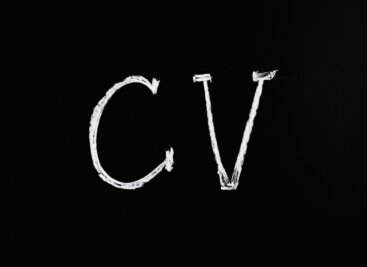There are many different reasons why employers might decide to use an external recruitment consultant to fill management consultancy jobs. They may also wish to engage with them in a variety of different ways – from simply a source of CVs to a full advisory role.
There are several important ways you can make sure you are working most effectively with your recruiter.
A good recruitment consultant, focussed in the area of consulting jobs, will both provide a good service and a winning candidate but also earn their fee by adding value and expertise. This applies to a contingent or “agency” service and in addition, for a retained search, you should expect to get a Rolls Royce service and much greater certainty of a successful outcome.
Clearly a recruiter’s top priority is to come up with great candidates but they should do more.
This is what you should expect from a good recruiter:
1. Same day return of calls and emails
Clearly sometimes this can’t happen for a good reason. However, if the recruiter isn’t responsive you need to wonder whether you are getting a good service. But you also need to ask yourself: is it them or is it me? If I seem to be low down on my supplier’s priority list why might that be? Is my brief unrealistic? Are my fees too low?
2. Willingness to spend time taking your brief
In our experience it takes at least an hour, and often much longer, to thoroughly get under the skin of a management consultancy employer and the consulting jobs they are seeking to fill. Taking time to understand the requirements of a client is one of the signs of a good recruiter. If the recruiter gives you 10 minutes and has a quick look at some job specs (or alternatively you only give them 10 minutes!) how can they understand what you’re looking for and how to sell your company to candidates?
3. Probing questions and honesty
You should feel they are really delving into the role and not afraid to ask challenging questions. If there are aspects of the company, salary, job or the candidate spec that are a concern they should tactfully tell you. However, they should also definitely give you the impression they are enthusiastic and understand the attractions of the role and employer.
4. Attentive but not pushy
A recruitment consultant shouldn’t call you every day to chase a CV but a big part of their value to you is to help ensure an efficient and swift process and that good candidates don’t go elsewhere. To your competitors for example. They are doing their job if they ensure that this hiring doesn’t disappear off the radar and they are doing you a service if they help make recruitment a priority alongside your competing client work, for example!
5. They should know the market
The consultancy job market and the ability to fill jobs in management consultancy is a valuable and rare skill set! If you are confident they demonstrate market knowledge then you can be confident they understand your company, the brief, what a good candidate looks like and where to find them. They will also be able to give you advice and pointers too. This expertise will also help them be credible with candidates on your behalf. These are the qualities of a good recruiter.
If you are a corporate client looking to recruit a management consultant your should ensure that the executive search firm you select has experience in this type of assignment. It is important that they are able to advise you how to identify and attract the best management consultancy candidates for this type of role. It is a complex market and requires a depth of specialist market knowledge and experience. Be aware that your usual recruiters will probably have no clue!
Indeed a recruiter is unlikely to admit any weakness in their knowledge, so if they are asking odd questions, or very few questions, that might be an indication that they don’t really know what they’re doing. Otherwise, the proof might be a week or two later and an email blizzard of irrelevant CVs. Reviewing their LinkedIn profile may assist you to gauge their experience.
6. Professional manner
Apart from simply being more pleasant to work with, for executive and professional roles it is essential that a recruitment consultant represents you in a professional manner whether that be their spoken or written skills, their appearance or integrity. They are, after all, an extension of your company and employer brand. If they are approaching candidates about your management consultancy jobs they will be much less likely to be successful if they don’t command respect from job applicants
7. Good organisational skills
This may be obvious perhaps but often a recruiter is hired by their own employer for his/her sales ability and that’s not always strongly correlated with administrative and organisational capability. As you might realise when the candidate doesn’t turn up for an interview. You, therefore, should be alert to clues that may be suggestive of weakness here.
8. Intelligence: both emotional and brainpower
Clearly emotional intelligence is vital to enable a recruiter to do a good job assessing and influencing candidates on your behalf. However, don’t forget the management consultancy job market is very complex and involves dealing with bright people which can present difficulties if your recruiter isn’t credible with those candidates. Also, many recruitment related situations require the ability to understand and weigh up complicated factors and scenarios. If the recruiter doesn’t seem “on the ball” and to comprehend the subtler aspects of what you are discussing with them then they may struggle to deliver good candidates and to manage the process effectively.
9. Communication skills
A cliché of course, but a recruiter requires skills that are specific and relevant to the market they are working in. Different candidate pools require very different approaches. A subset of this is “sales”. In the management consultancy job market candidates are unlikely to be impressed by glib sales patter which might simply alienate your target candidates. With limited sales skills however they will fail to persuade great talent what a wonderful opportunity you are offering. The right balance is essential.
10. Attention to detail
If a recruiter’s emails have mistakes in, for example, how can you be sure they will get the time right when confirming the interview? Or get the salary and benefits right when presenting the CV to you? Or when relaying details of the job offer to the candidate? Also, poor emails are unlikely to come over to candidates as “professional” (see above). They may put off candidates from engaging with the recruiter in the first place.
11. Thorough candidate vetting
If the recruitment consultant is going to determine a candidate’s suitability for your role a detailed discussion, almost certainly a Zoom/Teams video call, needs to take place. This is likely to be at least 40 minutes and often longer. Why not ask the recruiter what they will do to assess candidates?
12. Integrity
Unfortunately, this is not always a feature of people in the recruitment industry. Of course, you want to be dealing with someone of integrity but how do you know? Do you inadvertently collude in poor practice? For example, would you use a recruiter that sends you a CV without the candidate’s permission? Many employers do despite it now being clearly illegal (GDPR). If a recruiter does that what else might they be doing you are not aware of but which has an impact on your hiring or your firm’s reputation? You should always make sure you’re getting the most out of your recruiters.
For more information on recruitment consultants, how to choose them and how to work with them email Chris Sale, Managing Director, Prism Executive Recruitment [email protected] or call him on +44 (0) 203 143 5926


